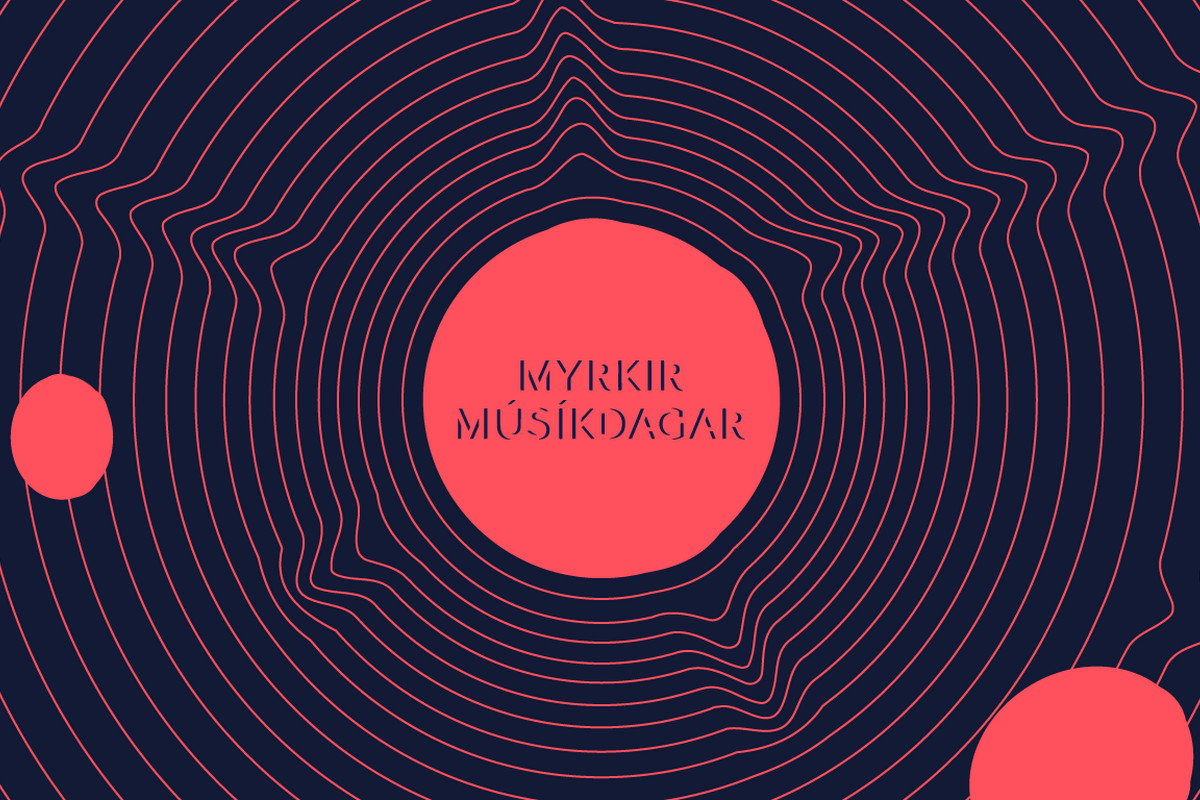
While it’s normal to feel a sense of familiarity returning to a festival year after year, it was stronger than usual at the 2023 Dark Music Days in Reykjavík since it was only 10 months since last year’s festival, which had been delayed due to the pandemic. It also served to emphasise the sense of continuity that this festival has, effectively picking up where 2022 had left off, showcasing some of the best of Iceland’s broad compositional spectrum, in an eclectic range of chamber, orchestral, ensemble, choral and theatrical performances crammed into a more than usually busy week.
While the theatrical events were among the most visually arresting, they also tended to be the most inscrutable. Anna Halldórsdóttir‘s closing night chamber opera for mezzo-soprano and cello Love a nervous wreck, no dance at Ufsaklettur was a casualty of being sung entirely in Icelandic without any translation provided. Perhaps it wouldn’t have mattered, considering the work (actually a singspiel rather than an opera) stuck so slavishly to a pretty basic diatonic language, often bordering on pastiche, but it would have been nice to have had just an inkling of what any of it was actually about.
Much more involving was Mörsugur, a piece of music theatre (described as a “poetic tale”) by Ásbjörg Jónsdóttir and Ragnheiður Erla Björnsdóttir, given a tour de force solo performance by singer Heiða Árnadóttir. This time a translation was provided, offering an insight into the work’s mix of intimacy and myth, tapping into the country’s legends. Progressing more according to shifting emotional currents than a linear narrative, the performance was a marvellous way for Heiða to conclude her 3-year residency at the festival. She moved between close-up reverie, bathed in and transfixed by light, later (interacting with large video screens) appearing to touch the clouds.
In one startlingly powerful sequence, having played imaginary bells with her fingers, she seemingly began to transform into a raven. Heiða’s rendition of this was remarkable: what emerged from her mouth was more than mere imitation, a complex form of vocalise – either sub- or super-expressive, depending on your perspective – continually tilting between dual impressions of bird and woman. Both musically and visually, Mörsugur was primarily about atmosphere and texture, with a strong emphasis on the natural world, though its earthy, folk intimacy took a surprising turn later on, entering a beat-laden stylised frenzy with strobes and swirling purple lights. It all made for a strange but unforgettable experience.
The festival opened with an event featuring performance group quartet Personal Clutter, that was for the most part dismally superficial and prosaic. The one exception was Our Favourite Things by Berglind María Tómasdóttir, receiving its world première. As the group slowly entered and moved about the stage, articulating a recurring phrase about how they “would love to be a flower”, its tone was hard to read: bliss? wistful? wishful? There was something curiously beguiling and intriguing about the piece, held in check at a liminal point between emotional containment and a trance-like dreaminess.
One of the members of Personal Clutter, Rosie Middleton, gave an impressive solo performance later in the week, the highlight of her recital being Esin Gunduz‘s en-he-du-an-na-me-en. Created as part of Middleton’s voice(less) project series, the piece continually played with our perceptions of what sound was emanating from her mouth or from the fixed media part. The initial impression was that nothing we were hearing – tentative, peripheral, provisional and preparatory sounds – were coming from Middleton, though that was soon challenged, expanding into a radiant chorus of complex avant-song. Yet even here, Middleton covered her mouth: exposing the ruse? indicating an implied shame or embarrassment? or simply one half of an electroacoustic dialogue opting out for a while?
The latter half of the work maintained this uncertainty, growing from halting syllables over a burbling mumbletexture to something altogether more demonstrative, as if Middleton were gradually asserting the power of (her?) song, climaxing in ululations that, to the end, defied attempts to pin-point her precise vocal role and contribution. A mesmerising performance of a stunningly powerful work.